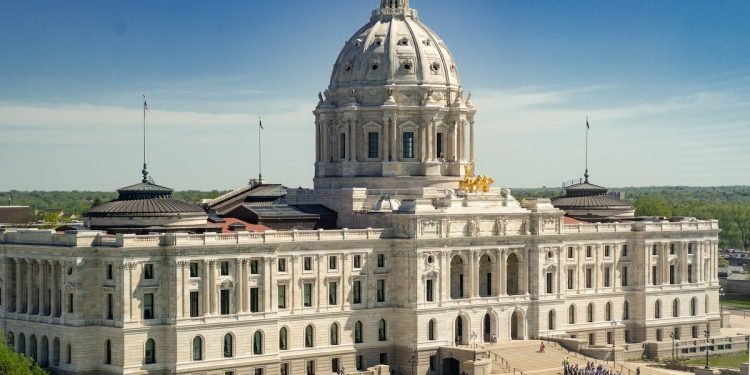"Revitalizing Minnesota's Economic Landscape: Paving the Way for a More Business-Friendly Future"
"Minnesota's Legislative Session: Balancing Priorities and the Impact on Business and Families"

The recent Minnesota legislative session, which concluded in May, has drawn significant attention due to its far-reaching implications for the state's residents. With a controlling party in place, the session moved swiftly, resulting in the passage of numerous bills, each carrying ambitious promises.
Some of the key measures included energy mandates, social policy reforms, new business regulations, and the introduction of a state-run paid leave program. However, it also entailed a substantial increase of over $9 billion in taxes for Minnesotans.
Following the session, Democrats have been touting the session's successes and highlighting a CNBC state ranking that praised Minnesota's business competitiveness. However, this ranking, like the Democrats' assessment, arguably overlooks essential factors when evaluating business-friendliness, such as cost of living and overall business regulations.
Objective evaluations from sources like the National Tax Foundation present a different perspective. Minnesota ranks fifth in per capita tax collection and 39th in the percentage of income paid by residents in state and local taxes. It also holds the undesirable fifth position in the country for business tax climate, encompassing corporate, personal, sales, unemployment, and property taxes.
These figures demonstrate that Minnesota remains an expensive place both to live and conduct business. Adding to the burden are the newly implemented taxes, which affect families across all income levels, making it challenging for them to thrive in the state's economy.
Adjacent to North and South Dakota, a region represented by the author of this commentary, firsthand evidence reveals the consequences of such policies on businesses and families. Many individuals and businesses have opted to relocate to neighboring states due to the financial advantages offered there. This shift in location grants them more resources to invest in their businesses, fostering job creation, and affords families greater financial freedom to pursue their priorities.
Every additional burden on businesses and families, such as increased fees and taxes, leads to further consideration of relocation. Recent headlines highlight some businesses already making such decisions. Ignoring real-world data and relying solely on polished marketing materials risks overlooking the actual impact of adopted policies.
An issue often overlooked by Democrats is that Minnesota's economic performance falls behind the national average. In key areas such as economic output growth, job growth, labor force growth, and net inward migration, Minnesota ranks in the lower tier among states. Rather than addressing barriers imposed by the government on economic growth, Democrats are celebrating policies that may hinder the state's economy.
A growing sentiment among Minnesotans is that the government is taking too much from them and overstepping its role in directing how their money should be spent. Historically, market-led growth has proven to be the most effective way to raise the standard of living for everyone. Successful businesses create high-paying jobs and provide valuable benefits, fostering a positive work environment and retaining skilled workers.
While recognizing the role of government in the economy, there is concern that the current trajectory may lead to increasing difficulties for citizens instead of offering solutions. Republicans are open to engaging in constructive debates to improve the state's political landscape. However, if Democrats persist in disregarding information they find inconvenient, the state may witness more families and businesses seeking opportunities elsewhere.

 chandni
chandni 



